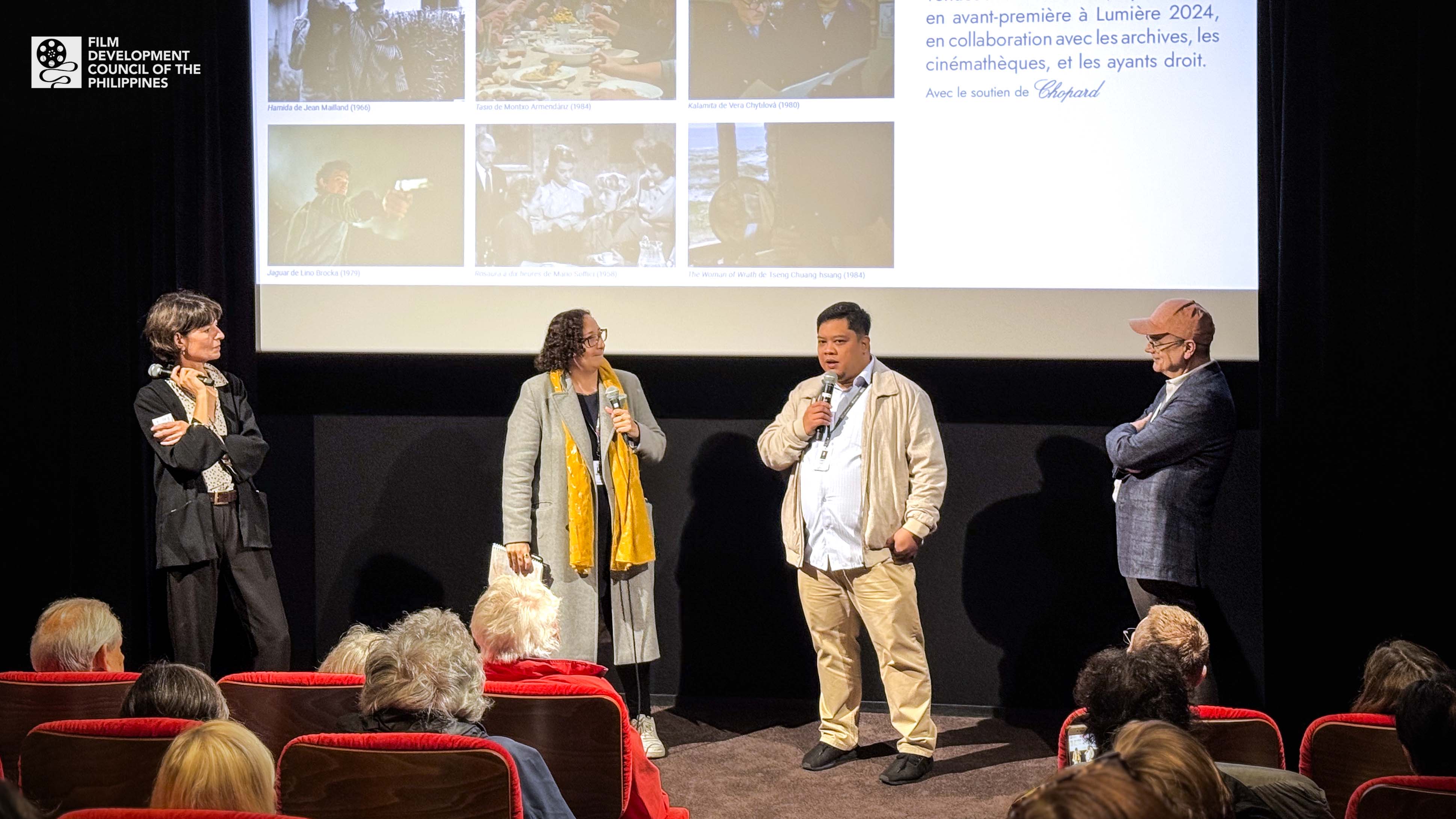FDCP Urges House to Include Film and AV Industry in the Economic Stimulus Act Bill
The film and audiovisual (AV) industry was the first to be badly hit by the coronavirus disease 2019 (COVID-19) pandemic. Screenings and events were cancelled and productions were postponed as early as January when the first few COVID-19 cases in the country were reported. The film and AV industry is projected to be the last to recover from the blows of the public health crisis because mass gatherings remain to be prohibited.
The film and audiovisual industry leads the Top 10 hardest-hit business sectors caused by the pandemic. This is according to a Department of Finance (DOF) survey through the National Economic and Development Authority(NEDA) that cited the arts, entertainment, and recreation as the most affected sector, followed by tourism.
With this glaring result, the Film Development Council of the Philippines (FDCP) is calling for the inclusion of the film and audiovisual industry in the proposed Philippine Economic Stimulus Act (PESA) Bill for the Effects of the COVID-19 Pandemic.
“The film and audiovisual industry has always been ingrained in the Filipino experience. Whether through the consumption of film and audiovisual content or witnessing live events and performances, these expressions of our narratives nurture our appreciation and preservation of culture and the arts,” said FDCP Chairperson and CEO Liza Diño-Seguerra.
“With the current situation, the FDCP believes that a package specifically created for the film and AV industry is needed to give grants and immediate lifelines to the most vulnerable workers and companies. With no assurance or estimate that things could go back to normal, the film and the audiovisual industry is now in a critical situation; worse, it could collapse if it does not receive additional support from the government,” added Diño-Seguerra.
As the national film agency responsible for film policies and programs to ensure the economic, cultural, and educational development of the Philippine film industry, the FDCP submitted a position paper to the House of Representatives to officially seek for the inclusion of the film and audiovisual industry as beneficiaries under the PESA Bill.
The severity of the film and audiovisual industry situation
The Creative Economy Council of the Philippines stated that there are at least 2.8 million creative economy workers who are mostly freelancers. In the film and AV industry, over 760,000 workers have been displaced due to the COVID-19 crisis. An FDCP survey revealed that most of these displaced workers are freelancers as 70% to 80% of audiovisual workers belong to the gig economy. In a survey by ilostmygig.ph, displaced creative freelancers lost 4,041 projects, equating to P105.8 million.
The Philippine Cinema box office had a 47.52% income loss for the first quarter of 2020. The expected gross box office of P1.8 billion from January to March 2020 went down to P900 million. A loss of P4.5 billion is projected from March to June 2020. The Animation Council of the Philippines Inc. (ACPI) noted that if the pandemic stretches until December, the animation service sector could experience a loss of P710 million this year.
According to the Disaster/Emergency Assistance and Relief (DEAR) Program of the FDCP, over 160 films and AV projects were cancelled during the Enhanced Community Quarantine period, with each production averaging at P15 million per project. This constitutes a projected P2.4 billion loss in the film and AV production sector.
FDCP Chairperson and CEO Liza Diño-Seguerra in an interview with The Manila Times TV
Other badly hit segments of the industry are the advertising and media content sector which was supposed to have a P97.23 billion total spending this year and the performing arts and theater group sector with more than P269 million in gross revenue loss as estimated by Philstage.
The Cultural Center of the Philippines (CCP) has an estimated revenue loss of P90 million, with at least 800 canceled events and 3,000 affected artists and cultural workers. The National Commission for Culture and the Arts (NCCA) said that 400,000 workers in the arts and culture sector have been displaced.
More than P373 million in gross revenue is potentially lost for the rest of the year in the music events and festivals sector while the social events and wedding sector is dealing with an estimated loss of P90 billion.
Proposed interventions to alleviate the film and AV industry
In this light, the FDCP hopes that film and audiovisual companies will be included in the government’s economic stimulus programs, especially those that provide guaranteed loans and training programs for upskilling and retooling to micro, small, and medium enterprises (MSMEs). The FDCP also hopes to continue to work with the Department of Trade and Industry-Export Marketing Bureau (DTI-EMB).
More transitional, financial, and sectoral interventions are presented by the FDCP in its position paper with the primary recommendation of adding a specific section for the provision of assistance to the audiovisual industry, similar to Section 20 for the tourism industry and Section 21 for the transportation industry.
The FDCP strongly supports the regularization of MSMEs as this will encourage film and audiovisual-related businesses to increase and become a widely formal sector as business registration and revenue rules and regulations are relaxed, and corresponding fees are waived for not more than 18 months.
In addition, the FDCP commends the PESA Bill’s inclusion of free registration of freelancers from the Social Security System (SSS) and Bureau of Internal Revenue (BIR) to promote their integration into the formal economy. Meanwhile, the FDCP's suggested transitional interventions are the following:
- Waiving or giving a discount on government fees involved in the operations of the film and AV industry including, but not limited to, rating fees for the Movie and Television Review and Classification Board (MTRCB) and processing fees with local government units (LGUs) for permits
- Extension and expansion of wage subsidies to non-essential businesses
- Including freelancers as part of the informal sector for the enhanced Tulong Panghanapbuhay sa Ating Disadvantaged/Displaced Workers (TUPAD) Program of the Department of Labor and Employment
- Inclusion of the FDCP DEAR Program as a complementary wage subsidy measure of the government
- Provision of ample testing kits to film and AV businesses from their LGUs
As for financial interventions, the FDCP supports the proposals to provide interest-free loans to MSMEs. Its other recommendations include:
- Increasing the maximum loanable amount based on the borrower’s direct labor costs from three (3) months to six (6) months
- Having a 5-year Net Loss Carry Over
The FDCP also hopes to continue collaborations and forge new partnerships with government agencies. Some of the proposed sectoral interventions are:
- Through the DTI, providing assistance to MSMEs through technical assistance or grants for education, training, and consultancy services
- Allocating from the proposed P10-billion assistance to MSMEs for the film and audiovisual industry for up-skilling, reskilling, and retooling.
- With support from the Department of Information and Communications Technology, providing subsidy loans for ICT equipment and software
- Through the Intellectual Property Office of the Philippines, ensuring the implementation of laws covering IP rights
- Including the live events sector in Meetings, Incentives, Conferences, and Exhibitions (MICE) tourism so that it may receive aid from assistance packages care of the Department of Tourism
- Promoting the Philippines as a location for filming and film services through participation in film location markets and film tourism activities under the forms of tourism promotion
- Adding film markets, international film festivals, and film labs to the Assistance to Industry and Service Sectors
- Through the “enhanced Build, Build, Build” Program, the construction and renovation of infrastructures supportive of the creative industry
- The review of levy of amusement tax under the Local Government Code
- Giving representation to the film and audiovisual industry in the Economic Stimulus Board (ESB), with the FDCP as a willing industry representative
The FDCP asserts that its recommendations are critically needed now by the film and audiovisual industry. It hopes for the whole government to respond to the industry’s most vulnerable sectors. In the service of its stakeholders, the FDCP offers to be the bridge between the government and the industry in ensuring that the film and audiovisual industry will survive, recover, and thrive again.






